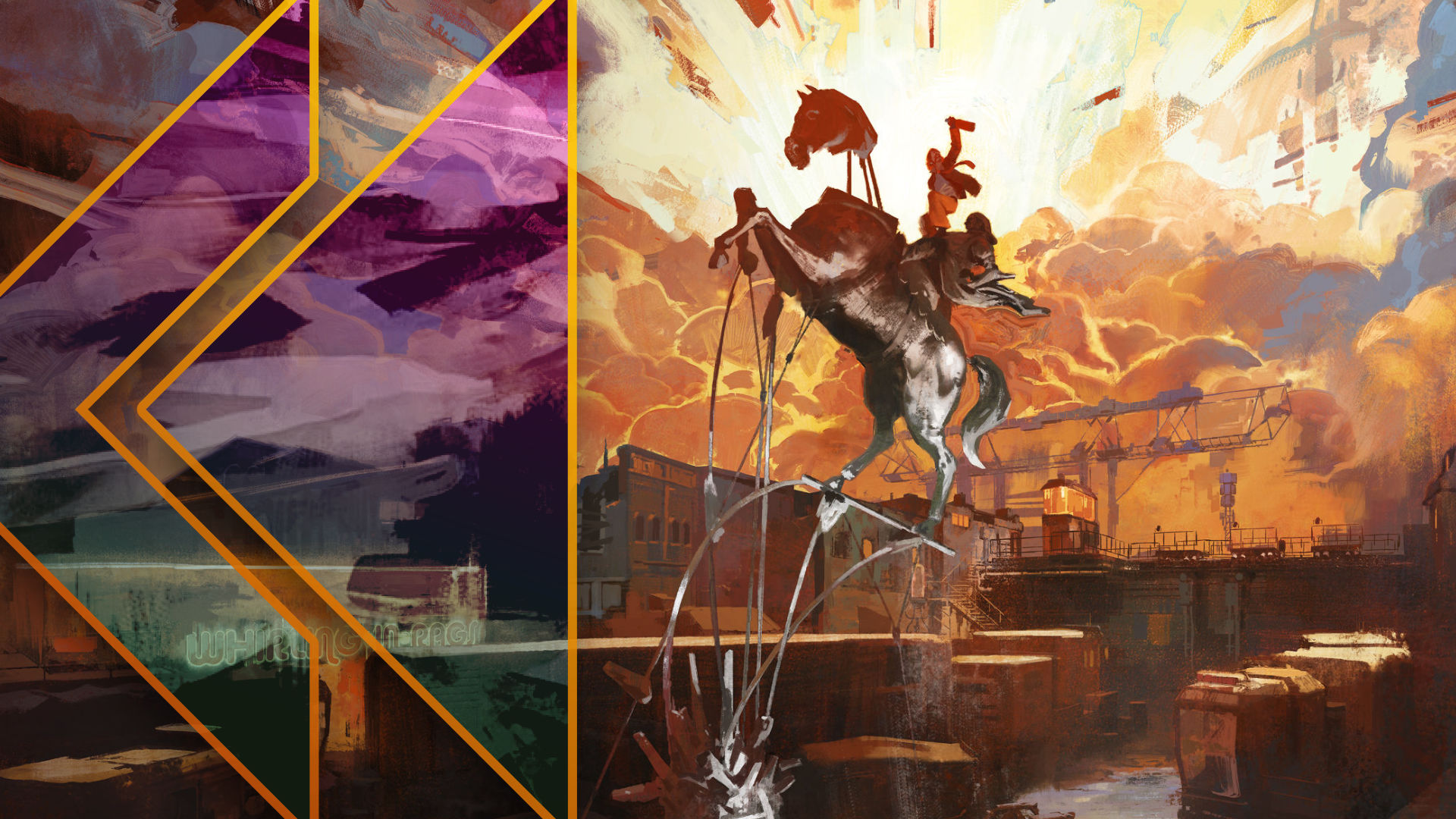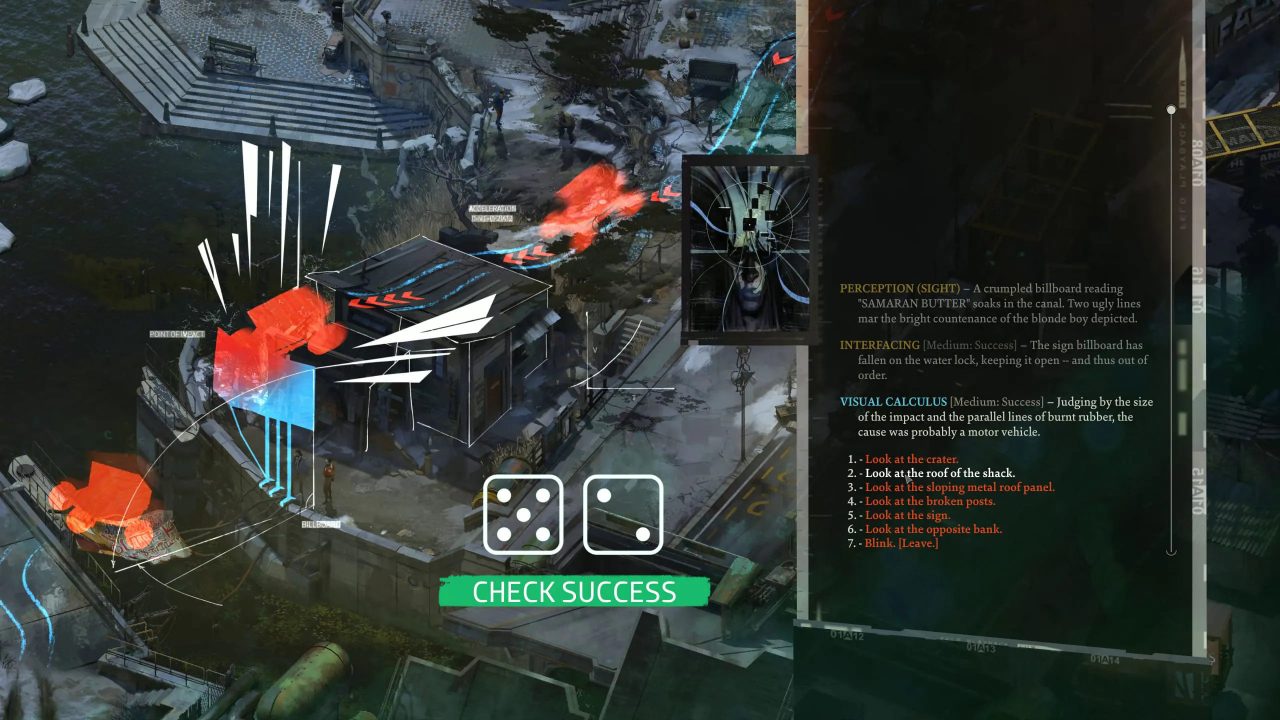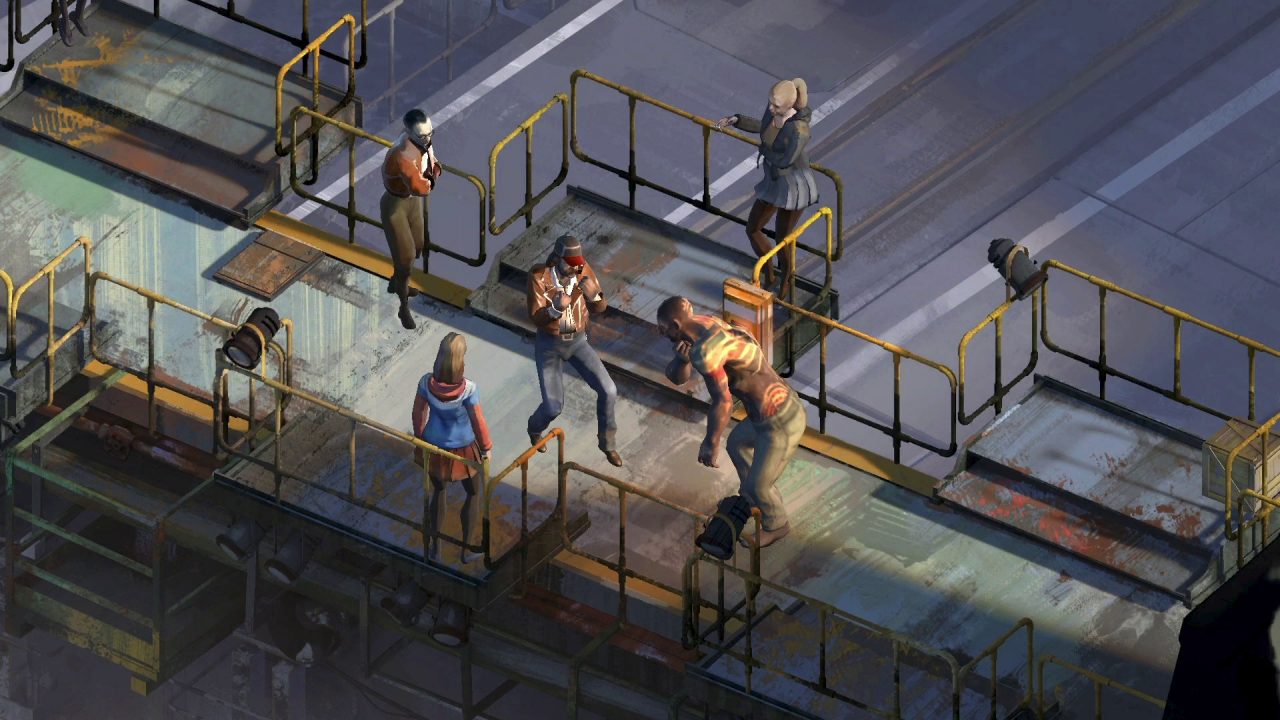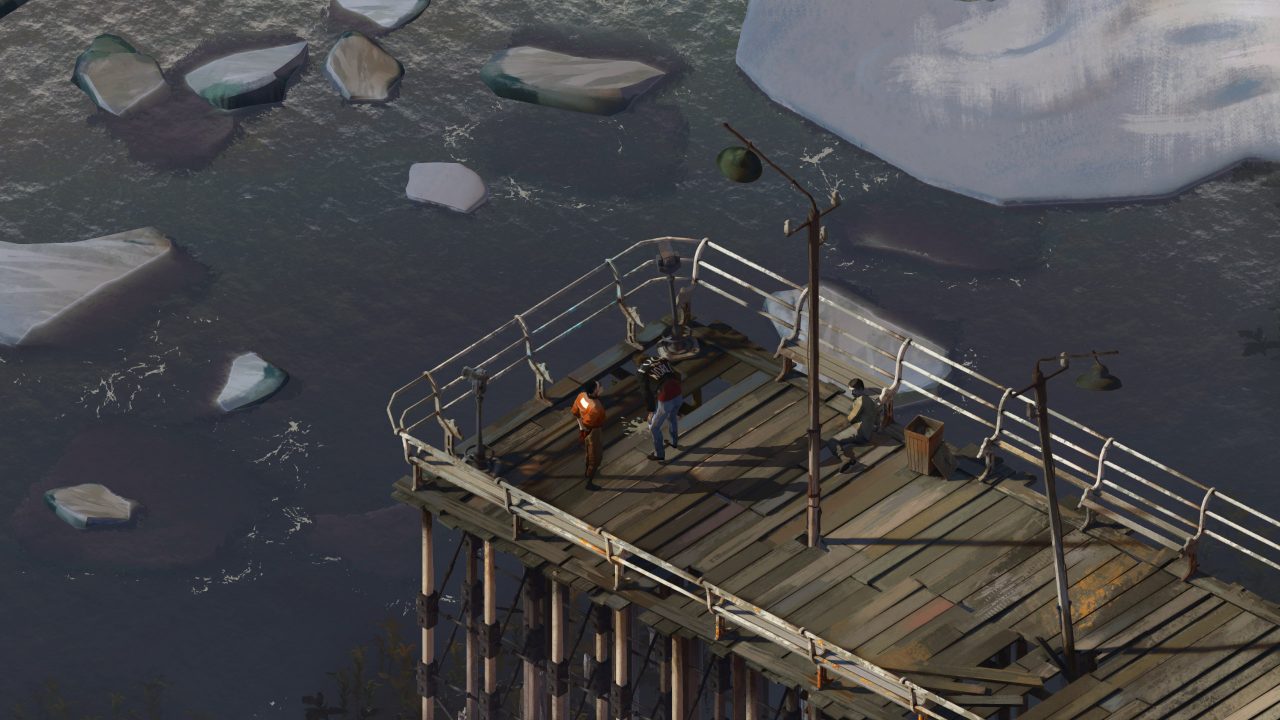Hilary Andreff
Disco Elysium is a game you play when you feel like reading a book.
I’ve been reflecting on this comment significantly since we convened and podcasted, and it’s true in many ways. This game requires attention, patience, reflection and promises a range of responses and feelings that match even well-written fiction. Disco Elysium was constantly triggering my personal Thought Cabinet, though what I internalize and what I gain from it remains to be seen. I keep coming back to the occasional inspirational comments you get at that bleak moment exactly when you need them. They absolutely flourish and have a large impact because the world around them (and the hardship) feels genuine, so I think it wouldn’t be a bad place to start.
And yet, Disco Elysium is more than an engrossing and enriching story. Tabletop gameplay elements, replayability, and some thoughtful meta-nods in the game make it remarkably interactive, and keep you returning to see the differences in the world and characters you create. I noticed how often our discussion veered toward “Oh, I took this approach; did you see what happened if you followed through with this line of Harry’s thinking/investigation?” What a gift that is. I think this is why so many players find something personally meaningful in their journey here, whether it’s how the game handles addiction and recovery or the sense of place and history that people from various backgrounds can recognize. You start from scratch and can recognize (or not), investigate (or not), and respond (or not) as you see fit.
I kept catching little glimpses of ideas, like dancing motes of light, that I held onto. The way it represents different parts of your nervous system and the connection between your brain and body. The special place the game holds for Volition—a core concept in my own line of work—and has a whole subset of stats for motor skills. The fact that there’s been honest-to-goodness research on how the game helps players consider and build their own life story narratives. I could go on, but I think Conceptualization summed up my main point:
“Oh, we’re contemplating the living s*** out of this.”
Aleks Franiczek
I think so highly of Disco Elysium and the sense of agency it gives its players that I wrote an essay about it. After playing through it a second time I only feel stronger about the game’s vast roleplaying possibilities and the way it weaves political consciousness into its systems and narrative. We often think of digital RPGs as a set of mechanical conventions that can be reused in new worlds and with new aesthetics, but Disco Elysium reaches into the heart of tabletop RPGs by prioritizing the player’s self-determined narrative experience. Each NPC interaction is a vast, wordy space to develop your version of Harry DuBois (or whatever name you choose to internalize instead) through sharp and purposefully written dialogue choices—all spurred along by the internal chorus of voices defined by the skills and thoughts you choose to build Harry with. It’s a brilliant way of simulating the human mind and letting players observe the personal and narrative consequences of how they are shaping their character. I hope it continues to be a shining example for how to offer players fundamentally unique types of experiences within the genre.
Bonus points for somehow also being one of the funniest video games out there.
Ben Love
There are so many ways I could lavish praise on Disco Elysium. The way it effortlessly weaves a buddy cop drama into a subtly fantastical world built painstakingly to mirror the triumphs and tragedies of our own. The way it marries traditional roleplaying mechanics like character building, equipment, and stat-checks into a game carried effortlessly by the sheer quality of its writing and art direction. The way it manages to craft unique and surprising scenarios out of such a compact setting.
However, the greatest strength of Disco Elysium is its ability to represent the breadth and depth of human experience. This particular Reddit post by a user from Iraq illustrates how the game is able to transcend cultural barriers and strike at the heart of the modern human experience. Disco Elysium sees the beauty and complexity in even the most broken places, long forgotten and abandoned by the rest of society, a hub of human interaction and emotion rather than a place wholly defined by pity and suffering. The people of Martinaise, despite residing in this no man’s land of imperial conquest and neoliberal decay, are diamonds in the rough. Dust off a bit of the dirt and grime, peel away the layers of distrust and scrutiny, and you are rewarded with some of the most multi-faceted and brilliant personalities ever put to page. Even the internal processes of the player character’s own mind are brought to life, the firing synapses, stimulated nerve endings, and hidden impulses are their own characters, with roles to play in the narrative and your own perception of the events.
Disco Elyisum has a message to deliver (anti-capitalist, anti-colonialist, anti-imperialist, environmentalist) and yet it does so without directing you towards one particular path, letting you enmesh yourself in the various competing ideologies that make up its world (and ours) without losing its voice. It’s a game that intimately understands the experience of being human, putting that intricate web of emotion, intellect, and instinct into words in a way so few pieces of fiction can, and grants you such a fine degree of agency to chart your own unique journey through its central mystery. Nothing you do will change the outcome, but everything you do says something about your personality and your impact on the world around you. Disco Elysium wants you to truly live in its little slice of beautiful urban decay, and I will never tire of residing in Martinaise.
Zach Wilkerson
In the world of RPGs, there is no doubt that Disco Elysium is a singular experience, giving the player a type of interactivity and agency that only the best tabletop games can, but in the more fully curated environment that a video game provides. Every interaction feels like a fully immersive experience, where your choices, your predispositions and your skills can cause the conversation to go in wildly different directions, deeply impacting the overall experience. It was delightful to listen to my co-panelists discuss their playthroughs, each unearthing a different element of the wildly ambitious world of Disco Elysium. Even if I wanted to replicate my experience, my next inevitable run through Martinaise won’t be even vaguely similar to this one. On its own, this is enough to celebrate Disco Elysium.
But that’s not even what makes Disco Elysium stick out most to me. It’s that it’s deeply, fiercely and unapologetically human at its core. Even when the writers look at people in all their ugliness, and there is plenty of that here, it never fails to acknowledge the humanity underneath it all. Whether it’s a war criminal, a board member of a troubling capitalistic venture, or the young Communists whose understanding of reality doesn’t match up to our experiences, Robert Kurvitz and the rest of his team never failed to make me understand them at least a little. They see the full scope of how history, both on the macro and micro level, impacts the way we live our lives, and no video game since or after has matched it. Nowhere is this more clear than in Harry’s story, which is troubling, heartbreaking, and often completely hilarious.
Even if you’re turned off by the lack of combat or the paucity of typical RPG trappings, you owe it to yourself to play Disco Elysium. It’s an all-timer, folks.






